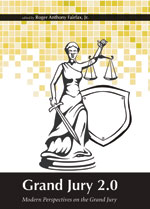Episode 092: Interview with Prof. Susan Herman.mp3
A New York Law Journal article Law Students Speak Out Against Grand Jury Decisions reports that law students and faculty across the state are speaking out against the recent grand jury decisions not to indict white police officers involved in the deaths of unarmed black men in New York and Missouri. The events come in the wake of last week’s announcement that New York City police officer Daniel Pantaleo would not face charges in the chokehold death of Eric Garner on Staten Island which followed last month’s decision by a St. Louis County grand jury not to indict Ferguson, Missouri, police officer Darren Wilson in the August killing of teenager Michael Brown.
Students from New York University School of Law, New York Law School, Columbia Law School, Fordham University School of Law, City University of New York School of Law and Brooklyn Law School have taken to the streets in between studying for finals, which began this week. Last week, Columbia Law demanded postponements of final exams for any student experiencing trauma over the grand jury decisions and recent national conversations on race. Today, in the court yard in front of the school, about two dozen BLS law students who are in the midst of final exam staged a four and half minute die-in. BLS Law Professors Susan Herman and Beryl Jones-Woodin are hosting a number of faculty members in a Town Hall (“After Ferguson? After Garner? After __?”) at 12:45 on Wednesday, January 28, after classes resume, to discuss the legal and policy issues presented by the recent events in Ferguson, Staten Island, and many other locations. Professor Herman speaks about the upcoming event in the podcast at the link at the top of this post.
 The BLS Library has a number of titles in its collection on the subject of grand juries including Grand Jury 2.0: Modern Perspectives on the Grand Jury by Roger A. Fairfax (Call # KF9642 .G73 2011). The book brings together essays written by leading legal scholars and jurists to re-examine the role of the American grand jury, one of the oldest protections known to the American constitutional order and challenges the American legal culture to re-imagine the grand jury and proposes ways to adapt the grand jury’s proud heritage to the needs and realities of modern criminal justice. The book’s synthesis of criminal law and procedure theory and analysis along with concrete policy proposals makes it required reading for any scholar, student, jurist or lawyer interested in the past, present, or future of the American grand jury.
The BLS Library has a number of titles in its collection on the subject of grand juries including Grand Jury 2.0: Modern Perspectives on the Grand Jury by Roger A. Fairfax (Call # KF9642 .G73 2011). The book brings together essays written by leading legal scholars and jurists to re-examine the role of the American grand jury, one of the oldest protections known to the American constitutional order and challenges the American legal culture to re-imagine the grand jury and proposes ways to adapt the grand jury’s proud heritage to the needs and realities of modern criminal justice. The book’s synthesis of criminal law and procedure theory and analysis along with concrete policy proposals makes it required reading for any scholar, student, jurist or lawyer interested in the past, present, or future of the American grand jury.
